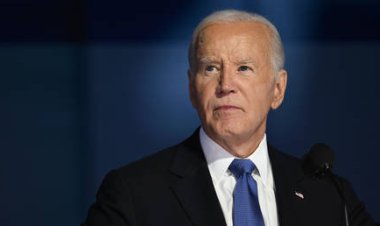Policy Catalysts Propel Hydrogen Sector in China's Shift Toward Low-Carbon Energy
Chinese authorities have introduced initiatives to promote the growth of the hydrogen energy sector, creating opportunities for a broader range of strategies in China's journey toward a more sustainable, low-carbon economy.

At the second Western Hydrogen Energy Expo, officials in Shaanxi Province, located in northwest China, declared that starting September 1, hydrogen-fueled vehicles with installed ETC systems will be exempt from expressway tolls for three years. Additionally, the province will provide subsidies to support the establishment of hydrogen refueling stations along expressways.
Shaanxi joins other regions like Shandong, Sichuan, and Inner Mongolia's Ordos, which have introduced similar policies favorable to hydrogen vehicles earlier this year. These initiatives are expected to improve the commercial viability of fuel-cell vehicles.
"At present, the cost of purchasing and running fuel-cell vehicles is quite high. In addition to relying on technological advancements and mass production to reduce costs, active government guidance and nurturing are also essential for the rapid development of this industry," commented Liu Jianguo from North China Electric Power University.
"Heavy-duty trucks powered by fuel cells are particularly promising, and by reducing or eliminating tolls on expressways, we can lower the total cost of using these trucks over time," Liu further stated, highlighting potential economic benefits for the industry.
Research by the China automotive strategy and policy research center indicates that operating costs for a 49-tonne fuel-cell truck are significantly higher than those for a diesel truck. Zero toll fees could lessen these expenses by around 25 percent. With the current usage rates, expanding the fleet by 100 fuel-cell trucks could inject substantial value into the hydrogen industry, enhancing production and infrastructure development.
Hydrogen energy's role was emphasized in this year's government work report, marking it as a pivotal emerging industry aligning with the nation's carbon reduction goals. Predictions by Sinopec Group estimate that by 2060, China will consume roughly 86 million tonnes of hydrogen, establishing a market worth 4.6 trillion yuan. A governmental target aims for 50,000 hydrogen fuel-cell vehicles on China's roads by 2025.
"The potential for hydrogen energy is vast, yet we face the challenge of developing safe and cost-effective methods for hydrogen storage and transportation," Wang Jingfeng of the Chongqing Institute of New Energy Storage Materials and Equipment noted.
Wang also emphasized, "Our current research into magnesium-based battery materials and hydrogen storage technologies is leading the industry, marking a significant stride toward the future of energy solutions."
The Chongqing Institute, a collaboration between Chongqing University and the Liangjiang New Area, focuses on merging advanced R&D with industrial capabilities, striving to become a top-tier research hub.
(Cover image via CFP)
Anna Muller for TROIB News
Discover more Science and Technology news updates in TROIB Sci-Tech












